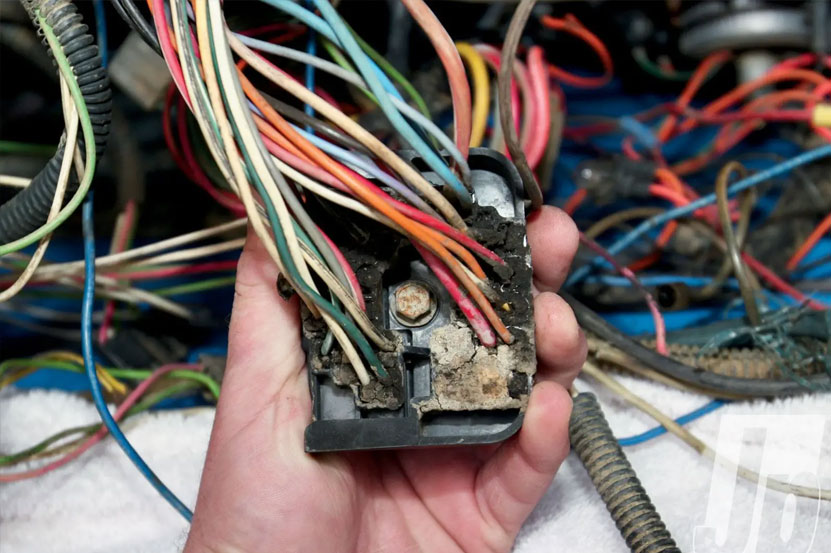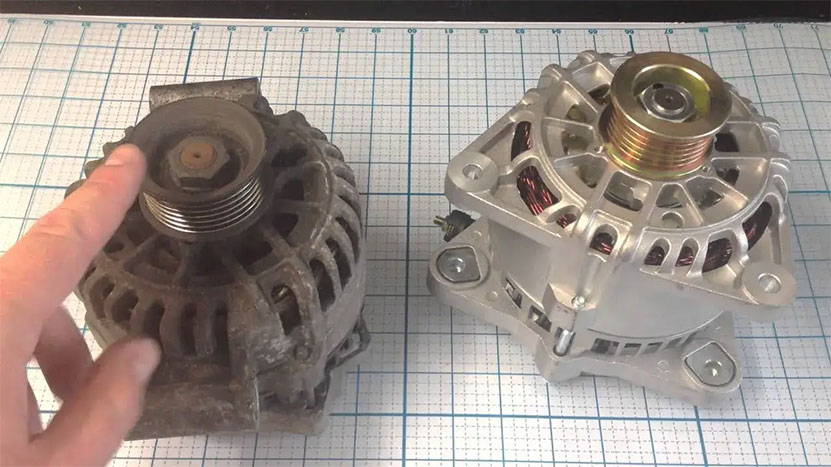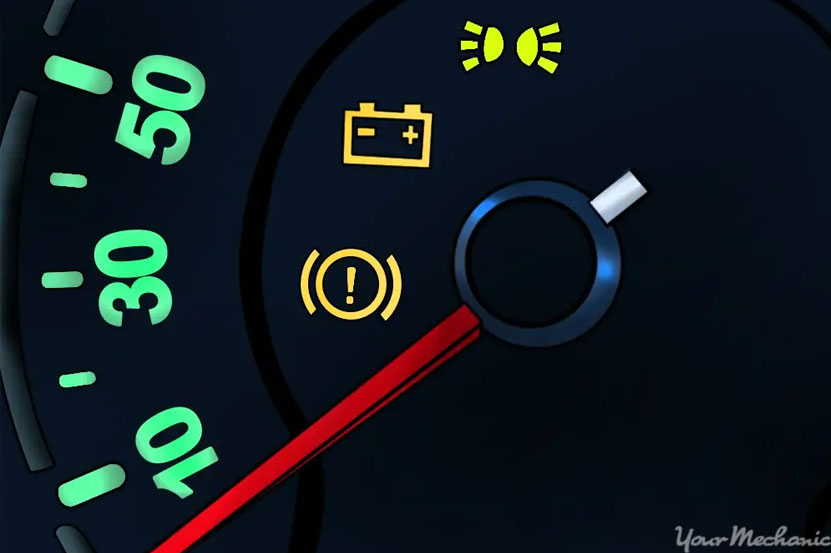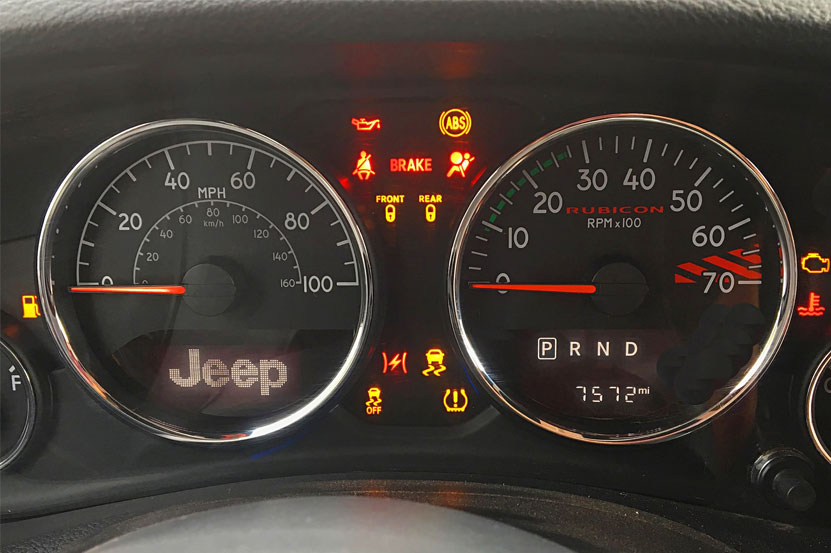The Jeep Grand Cherokee is a great ride, no doubt! But hey, like any machine, it can hit a bump now and then. If something’s up, those warning lights will give you the heads-up first thing.
So, what about the Jeep Grand Cherokee all warning lights on?
So, you’re cruising in your Jeep Grand Cherokee, and suddenly, bam! All those warning lights come alive. One likely culprit? When multiple vehicle systems hiccup. Plus, a wonky alternator might join the party. Oh, and don’t forget about pesky wiring issues, burnt wires, or a drained battery. They can all team up to light up your dashboard like a Christmas tree.
Want to dig deeper? No sweat! We’ve got a handy guide to help you tackle this hiccup hassle-free. Let’s dive in, shall we?
Jeep Grand Cherokee All Warning Lights On: Justifying the Issue!
When all your car’s warning lights flicker to life, it’s a clear sign something’s up with the system. Each light has its own tale, but when they all glow at once, it’s like a system-wide SOS for a bigger issue.
When your car’s dashboard lights come on, they’re like little alarms telling you if something’s up. They’re meant to show if a part isn’t working right, but sometimes they might be wonky too, giving off the wrong signals.
Every light on the dashboard tells a story. When one lights up, it’s like your car’s way of saying, “Hey, something’s up!” Getting it checked ASAP ensures your ride stays safe and sound.
When you start the engine, it’s normal for some lights to come on briefly. But if they go off after a few seconds, everything’s good to go.
Quick Troubleshoot of the Problems
When every warning light is glowing, it’s like your car’s way of saying, “Uh-oh, something’s up!” It could mean trouble with more than one thing under the hood, making it tricky to pinpoint the exact issue.
It’s super important to tackle the problem before hitting the road. Driving with issues, especially on long trips, can be risky. Even if it’s something big like the engine, it’s better to fix it first for a smoother ride.
| Reasons | Solutions |
| Electrical problem | Check all the electrical connections, batteries, alternator, loose wires, etc, and fix them |
| An issue with the alternator | Repair or replace the alternator |
| Failure in multiple systems | Check each system of the car individually and fix them. |
Now that we’ve covered why all the warning lights might be on in the 2012 Jeep Grand Cherokee, let’s dive into each issue and how to fix them step by step.
Reason 1: Electrical Problems
Electrical issues are pretty common and can trigger other problems. Let’s check out the signs and how to spot them.

Identification:
Remember, besides all the warning lights, electrical issues can show up in other ways too. Keep an eye out for signs like difficulty starting the engine and problems with headlights and other indicators.
Sometimes, you might hear a buzzing noise even after you’ve switched off your vehicle. Plus, if you catch a whiff of burnt plastic or wire, it could mean there’s an electrical issue.
Solutions:
Fixing this issue is pretty straightforward. Start by examining all the electrical connections in your jeep. Loose wires can mess up the whole electrical system. Also, make sure the alternator is doing its job right.
In the next section, we’ll dive deeper into alternators. Meanwhile, keep an eye on your battery’s condition and performance. If you’re still unsure, it’s best to get in touch with a professional.
Reason 2: Faulty Alternator
When your car’s electrical system acts up, it could mess with the alternator, making it act wonky too.
When the alternator isn’t working right, it can mess with the electricity in your 2022 Jeep Grand Cherokee, and you might notice all the warning lights popping up more often than usual. Let’s dive in and explore why.

Identification:
To see if your alternator is doing its job, try out the headlight and battery tests. They’re easy peasy. Just make sure to do the headlight test outside so you don’t get any carbon monoxide sneaking up on you in the garage.
Get your car running and turn on the headlights. Have someone check them while you rev the engine in park.
If your headlights dim or brighten when you accelerate, your alternator might be acting up. If they stay the same, your alternator is probably okay.
Testing your battery at home is simple. Pop the hood, start the engine, and follow steps similar to removing a RAV4 battery. Disconnect the negative cable while the engine is still running.
If your car suddenly quits, it could be the alternator’s fault, as it’s not giving enough power for the engine. But if the car keeps going, it might be a battery issue instead.
Solutions:
So, here’s the deal. When your alternator acts up, you’ve got two choices: fix it up or swap it out. Honestly, swapping it is easier and saves you the trouble of tinkering with repairs.
You know what’s awesome? Alternators are pretty budget-friendly. Like, for a Jeep Cherokee from 2000-2004, you can snag a replacement for less than $150.
Replacing a New Alternator for a Jeep Grand Cherokee? It’s in the hundred-dollar ballpark.
Swapping an alternator? It’s pretty straightforward, anyone with basic car know-how can handle it.
Reason 3: Failure in Multiple Systems
The biggest issue causing all the warning lights to pop up in the 2018 Jeep Grand Cherokee is when many systems go haywire at once. Figuring out what’s wrong can be like finding a needle in a haystack.
No sweat! We’ve broken down why each warning light is flashing.
Identification:
When lots of things go wrong at once, all those warning lights start blinking. It’s like a signal that there are problems in different parts of the car.
Solutions:
Alright, let’s tackle this issue step by step. Start by checking each system and why it might be acting up. We’ve broken down all the warning lights and why they come on. Just give that section a read, and you’ll be on the right track.
What Does Each Type of Warning Light Mean?
Now that we’ve covered the big stuff, let’s dive into why each light is on. There could be a bunch of reasons, so understanding what each one does is key.
Battery Charge Warning Light:
You can’t miss the Battery Charge Warning Light. It’s red and looks like a car battery.
This light’s job is to tell you if something’s up with the power system, like the battery or charging. If it pops on, give those areas a once-over, especially the battery.

When the battery’s old, it can trigger the light. Loose wires or bad connections might also be to blame.
Oil Pressure Warning Light:
Look out for the oil can with a drip in your 2015 Jeep Grand Cherokee. If it pops up along with a chime, pull over fast and shut off the engine.
Driving with low oil pressure is risky. Your Jeep Cherokee’s engine could be in trouble. It might overheat fast, causing serious damage. Best to stop and get it checked ASAP to avoid bigger problems.
Stop right away and check the oil. If you’ve got spare, add it. Otherwise, get a technician to take a look.
Tire Pressure Monitoring System Warning Light:
Keep an eye on the Tire Pressure Monitoring System light. Proper tire pressure is key for safety and how your vehicle handles.
It’s important to pull over and fix things ASAP, even if you can drive a bit more safely. Extremely low tire pressure could lead to tire trouble, so it’s best not to risk it.
A blowout is super risky. The TPMS Warning Light looks like a yellow exclamation point next to a flat tire.
Electric Power Steering Fault Warning Light:
Look for a red light with handlebars and an exclamation mark. That’s the Electric Power Steering (EPS) Fault Warning, alerting you to an issue.
When this light’s on, your EPS system’s off-kilter. Get help pronto—it’s risky to keep driving. Without proper steering, accidents could happen, so don’t chance it.
Engine Check/Malfunction Indicator Warning Light:
That little yellow engine light? It’s like your car’s radar, watching over the engine and transmission. If it flashes, it’s telling you to act fast!
When engines get too hot, it’s trouble. Lots of things can cause it, and overheating is risky business. Don’t wait around—get it checked out pronto. Oh, and that light? It’ll even warn you about a loose gas cap.
Can I Drive My Car With All the Warning Lights on?
Sure thing! So, technically, you can keep driving with all those warning lights flashing, but honestly, it’s not a good idea. It’s like driving blindfolded – super risky because you don’t know what’s wrong. So, better safe than sorry, pull over and get it checked ASAP.
It might just be a tiny issue. But until you know for sure, it’s best not to drive.
Before we dive into the next part, check out this article about radio problems in Jeep Grand Cherokees. It could save you some headaches down the road.
Why Is It Important to Take Action Right Now?
When all the warning lights come on, it’s like a guessing game. So, it’s crucial to act fast to stop any more problems from popping up.
Take, for example, low engine oil pressure. Ignoring it can wreck your engine, or worse, cause a dangerous accident.
Issues like brakes or transmission can be super risky. Act fast to stay safe!
Safety Precautions
Before hitting the road in your jeep, give it a once-over. Take a look at every part to catch any issues early on. This helps steer clear of sudden breakdowns when you’re out and about.
Regular maintenance stops small problems from turning into big headaches. Ignoring issues can really hurt your jeep. Taking care of it means it’ll last longer and keep running smoothly.
FAQs
Q: Can accidents make all warning lights come on?
A: Yes, unfortunately. When accidents happen, they often mess with different parts of your jeep. If the airbags deploy, they’ll need resetting. Other systems might need it too.
Q: How do I reset my Jeep Grand Cherokee?
A: Easy! Turn your ignition to “ON” without starting the engine. Find the “STEP” button and press it until you see your kilometers remaining. Hold down “RESET” until it resets.
Q: How do I get rid of all warning lights?
A: Try turning off your jeep and starting it again. You can also disconnect the battery for a bit, then reconnect it. But if lights persist, it’s likely a deeper issue. Don’t ignore them; get your jeep checked out.
Verdict
So, that’s the lowdown on why all warning lights might pop up in your Jeep Grand Cherokee. Now you know how to deal with it. Just remember, stay safe by handling car issues carefully on the road.
Good luck!

